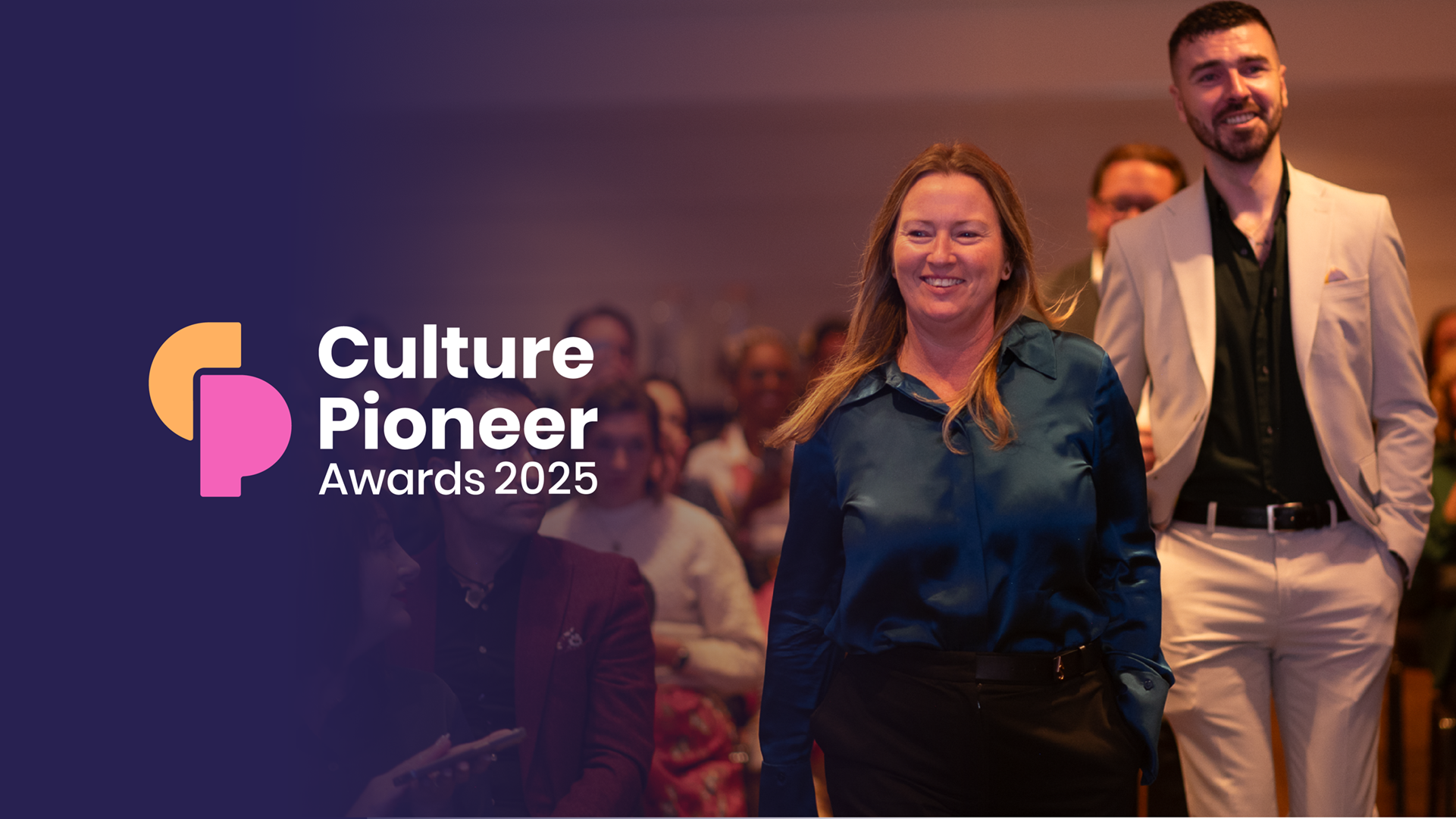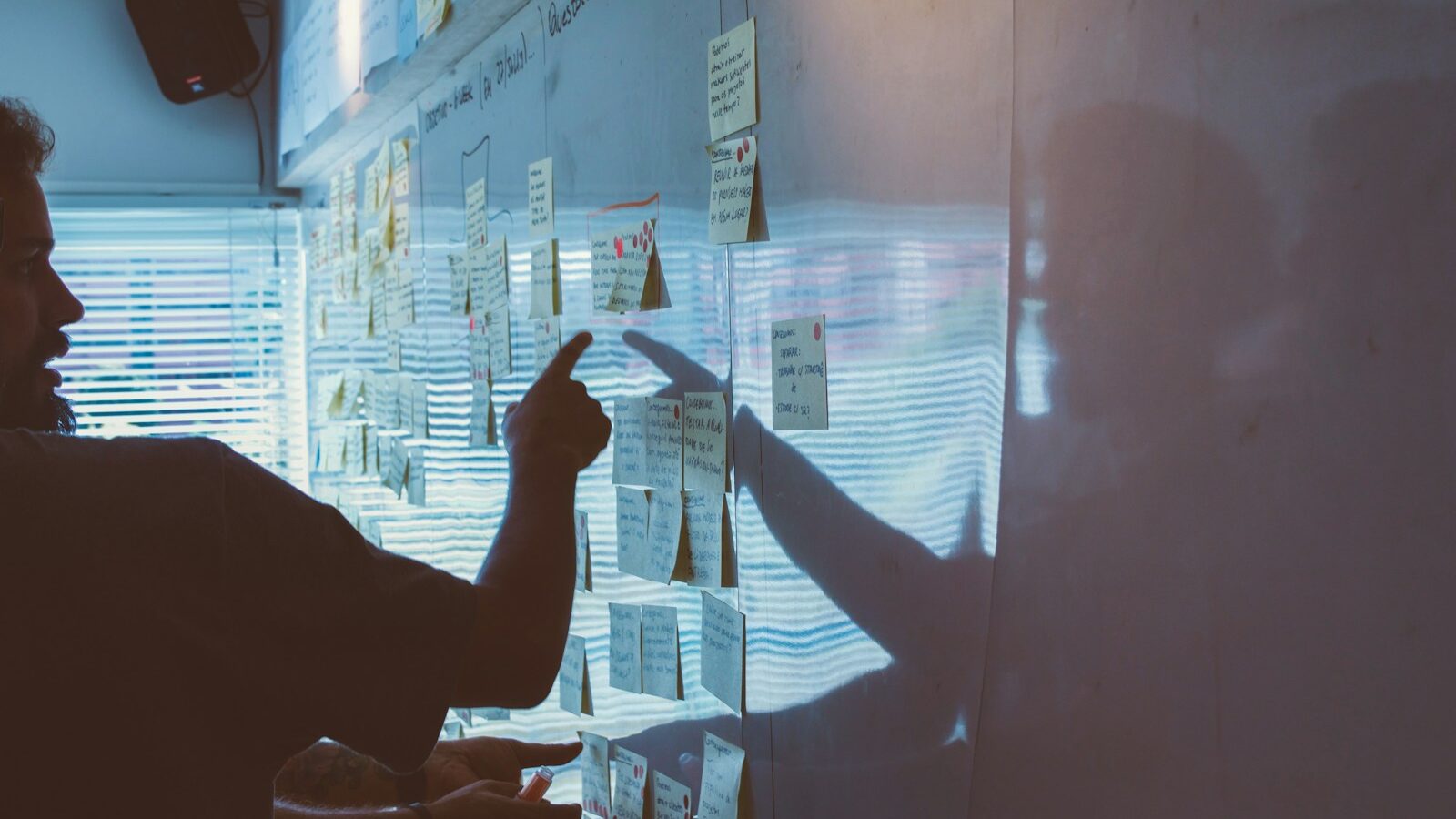In high-pressured work environments, relationship breakdowns sometimes happen. Here are some ways managers can bring teams together to avoid this.
Undoubtedly project delivery, especially within digital, has the potential to create stressful environments.
With new groups of people working towards tight, non-negotiable deadlines, and long hours that drain and deplete energy levels, this environment is conducive to relationships breaking down.
When relationships break down the results include disjointed or reduced flows of information between people.
There is little or no collaboration, people work against each other and conversations become siloed, creating chaos and confusion with no transfer of knowledge and a lack of clear direction, ownership, and continuity.
This leads to a reduction of output and the quality of work suffers, leaving the client unhappy with results.
In the extreme, people lose interest and stop caring. This lack of responsibility leads to increased absenteeism, creating further pressure for the remaining team, no less so the project manager.
The good news is that these problems can be addressed and there are ways to cope with conflict. There are four key stages at which you can reduce the risk of relationships breaking down, which I’ll outline below, along with tips on how to deal with them if they do.
Stage 1: laying down the foundations of any relationship

Build the foundations of the project in such a way that you create a strong team who want to work with one another to deliver the objectives of the project, even when the going gets tough. The greatest building blocks to use for this are trust and integrity.
Trust is the cornerstone of any relationship and it is nurtured by having open, honest and transparent conversations from the outset. Set these as ground rules for relationships in the project.
Ask the team to identify the benefits to conversations of this type and the potential risks of not working in this way. It is useful for the team to discuss what this behaviour will look and sound like, and how they proactively create this.
This way, if anyone has an issue they will feel safe enough to say it, knowing it will be acknowledged, treated with respect, and dealt with.
Remember teamwork begins by building trust – and the only way to do that is to overcome our need for invulnerability.
Patrick Lencioni, Author of The Five Dysfunctions of a Team
Integrity is described as an inner compass, the points of which are your own values and beliefs. Identifying and sharing your personal values will help to ensure everyone knows what is important to one another.
Once you have understood the values of others you have a greater opportunity to proactively meet these and avoid conflict. Here are some exercises to help identify which values matter most to you.
Stage 2: you built the project but did you build the team?

The key here is context and having a shared understanding – effectively sharing the blueprint for how the project is going to run, what tasks are to be completed and over what timeframe.
Be sure to share with the team who is responsible for what and give each individual involved in the project an opportunity to challenge their tasks or accept responsibility for them. This increases the accountability to the team.
Asking them to challenge their tasks also means you identify and deal with barriers at the outset.
Building a positive mindset within the team helps change perspectives on a situation, putting the team into a different space of thinking.
Individuals want to continue to feel valued as part of the team and that they exist and matter.
Ask individuals within the project to give gratitude for three things they are thankful for as part of this project. This will increase the positivity associated with the project as well as ensuring everyone feels engaged and enhances team members understanding of one another.
Stage 3: other reasons why relationships often break down

As a project manager or team lead, if you have completed the other two stages successfully, you will have helped to lessen the chance of relationships breaking down and conflict arising.
If things are still not going right, however, it can be often due to another handful of common challenges.
Loss of value
People want to feel proud of the work they have done and that they have completed it to a good standard and quality. It is important that they feel this has been noticed. Individuals want to continue to feel valued as part of the team and that they exist and matter.
This can prove challenging for team members who complete the tasks often ‘invisible’ to the naked eye. Similar to football, the whole team creates the goal but one team member scores it, often it is the player who made the good pass five minutes earlier that then goes unnoticed.
Loss of sense of belonging
Each team member wants to be seen, heard, and feels supported. If they feel they are not getting this from the team or their leader they will feel insecure in their role.
One cause of this is when they are exposed to information from a third party that they weren’t previously aware of. Feeling they have at some point been removed from communication and no longer feeling part of the project or the team, this can build resentment, which when left untreated can create a disengaged or obstructive team member.
The most basic human desire is to feel like you belong. Fitting in is important.
Simon Sinek, Author of Start with Why
Stage 4: applying this in practice

It’s important to recognise you are dealing with human beings and people often seem to change from morning, to noon, to night.
Individuals are dealing with a variety of personal or professional challenges outside a project that may impact on their interaction with the project itself and/or the team.
Harness the use of empathy: be in the moment and fully present when dealing with your team. Don’t allow yourself to be distracted by anything else. You may be busy, and project deadlines may be looming, but it’s important to put this out of your mind when dealing with an individual experiencing challenges.
It can be easy to think ‘they just need to get on with this’. Supporting your team at the outset can lead to better performance over the term of the project. See these conversations as investing time, getting it returned three-fold further down the line.
Actively listen: you can often identify when a person is having a bad day. Taking time out to speak with this person could be the one thing that changes the direction of their day for the positive.
Listen carefully to team members and ensure they know your door is open to discussion with you and they can trust you treating their concerns in confidence. Listen beyond the words being said and observe their body language.
When relationships work
If you complete these stages at the beginning of your project and throughout, your team and the client will feel the benefit of information being shared and flowing openly between people, and a project team who collaborate and work alongside one another.
The project will have a clear direction and clarity, and chaos and confusions diminish.
Individuals will take ownership of their work and become accountable.
For the client, output is increased and is of high quality.
Ultimately, having invested time with the team you will have created lasting relationships that go beyond the time spent on the (successful) project.
Enjoyed this article? You may also want to read How to successfully manage different personalities.
In high-pressured work environments, relationship breakdowns sometimes happen. Here are some ways managers can bring teams together to avoid this.
Undoubtedly project delivery, especially within digital, has the potential to create stressful environments.
With new groups of people working towards tight, non-negotiable deadlines, and long hours that drain and deplete energy levels, this environment is conducive to relationships breaking down.
When relationships break down the results include disjointed or reduced flows of information between people.
There is little or no collaboration, people work against each other and conversations become siloed, creating chaos and confusion with no transfer of knowledge and a lack of clear direction, ownership, and continuity.
This leads to a reduction of output and the quality of work suffers, leaving the client unhappy with results.
In the extreme, people lose interest and stop caring. This lack of responsibility leads to increased absenteeism, creating further pressure for the remaining team, no less so the project manager.
The good news is that these problems can be addressed and there are ways to cope with conflict. There are four key stages at which you can reduce the risk of relationships breaking down, which I’ll outline below, along with tips on how to deal with them if they do.
Stage 1: laying down the foundations of any relationship

Build the foundations of the project in such a way that you create a strong team who want to work with one another to deliver the objectives of the project, even when the going gets tough. The greatest building blocks to use for this are trust and integrity.
Trust is the cornerstone of any relationship and it is nurtured by having open, honest and transparent conversations from the outset. Set these as ground rules for relationships in the project.
Ask the team to identify the benefits to conversations of this type and the potential risks of not working in this way. It is useful for the team to discuss what this behaviour will look and sound like, and how they proactively create this.
This way, if anyone has an issue they will feel safe enough to say it, knowing it will be acknowledged, treated with respect, and dealt with.
Remember teamwork begins by building trust - and the only way to do that is to overcome our need for invulnerability.
Patrick Lencioni, Author of The Five Dysfunctions of a Team
Integrity is described as an inner compass, the points of which are your own values and beliefs. Identifying and sharing your personal values will help to ensure everyone knows what is important to one another.
Once you have understood the values of others you have a greater opportunity to proactively meet these and avoid conflict. Here are some exercises to help identify which values matter most to you.
Stage 2: you built the project but did you build the team?

The key here is context and having a shared understanding - effectively sharing the blueprint for how the project is going to run, what tasks are to be completed and over what timeframe.
Be sure to share with the team who is responsible for what and give each individual involved in the project an opportunity to challenge their tasks or accept responsibility for them. This increases the accountability to the team.
Asking them to challenge their tasks also means you identify and deal with barriers at the outset.
Building a positive mindset within the team helps change perspectives on a situation, putting the team into a different space of thinking.
Individuals want to continue to feel valued as part of the team and that they exist and matter.
Ask individuals within the project to give gratitude for three things they are thankful for as part of this project. This will increase the positivity associated with the project as well as ensuring everyone feels engaged and enhances team members understanding of one another.
Stage 3: other reasons why relationships often break down

As a project manager or team lead, if you have completed the other two stages successfully, you will have helped to lessen the chance of relationships breaking down and conflict arising.
If things are still not going right, however, it can be often due to another handful of common challenges.
Loss of value
People want to feel proud of the work they have done and that they have completed it to a good standard and quality. It is important that they feel this has been noticed. Individuals want to continue to feel valued as part of the team and that they exist and matter.
This can prove challenging for team members who complete the tasks often ‘invisible’ to the naked eye. Similar to football, the whole team creates the goal but one team member scores it, often it is the player who made the good pass five minutes earlier that then goes unnoticed.
Loss of sense of belonging
Each team member wants to be seen, heard, and feels supported. If they feel they are not getting this from the team or their leader they will feel insecure in their role.
One cause of this is when they are exposed to information from a third party that they weren’t previously aware of. Feeling they have at some point been removed from communication and no longer feeling part of the project or the team, this can build resentment, which when left untreated can create a disengaged or obstructive team member.
The most basic human desire is to feel like you belong. Fitting in is important.
Simon Sinek, Author of Start with Why
Stage 4: applying this in practice

It’s important to recognise you are dealing with human beings and people often seem to change from morning, to noon, to night.
Individuals are dealing with a variety of personal or professional challenges outside a project that may impact on their interaction with the project itself and/or the team.
Harness the use of empathy: be in the moment and fully present when dealing with your team. Don’t allow yourself to be distracted by anything else. You may be busy, and project deadlines may be looming, but it’s important to put this out of your mind when dealing with an individual experiencing challenges.
It can be easy to think ‘they just need to get on with this’. Supporting your team at the outset can lead to better performance over the term of the project. See these conversations as investing time, getting it returned three-fold further down the line.
Actively listen: you can often identify when a person is having a bad day. Taking time out to speak with this person could be the one thing that changes the direction of their day for the positive.
Listen carefully to team members and ensure they know your door is open to discussion with you and they can trust you treating their concerns in confidence. Listen beyond the words being said and observe their body language.
When relationships work
If you complete these stages at the beginning of your project and throughout, your team and the client will feel the benefit of information being shared and flowing openly between people, and a project team who collaborate and work alongside one another.
The project will have a clear direction and clarity, and chaos and confusions diminish.
Individuals will take ownership of their work and become accountable.
For the client, output is increased and is of high quality.
Ultimately, having invested time with the team you will have created lasting relationships that go beyond the time spent on the (successful) project.
Enjoyed this article? You may also want to read How to successfully manage different personalities.








